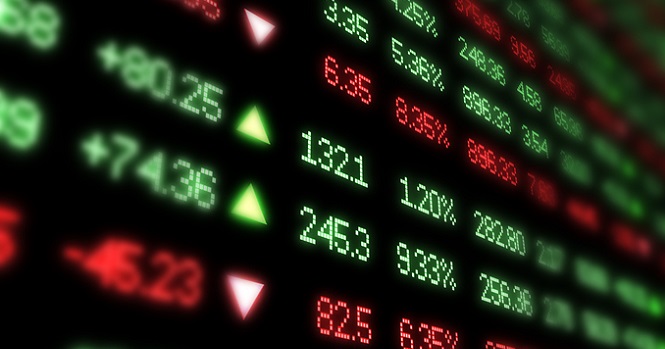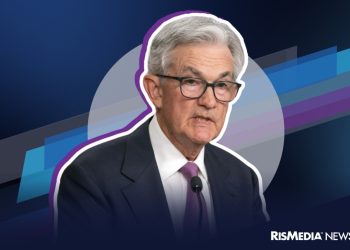There are many key metrics brokers look to in order to gauge how the housing market is trending. The Case-Shiller Index, the National Association of Home Builders/Wells Fargo Housing Market Index and the National Association of REALTORS® monthly existing-home sales statistics are all closely watched within the industry. For a sense of the broader economy, brokers tend to familiarize themselves with other data points such as inflation, employment and gross domestic product.
For everybody else, there’s the stock market. On January 25, when the Dow Jones Industrial Average—a composite index of 30 companies, none of which are solely in the real estate sector—passed 20,000 points for the first time, the story made national headlines. For most, it was a feel-good economic story that won’t change much except for instilling the sense of confidence and optimism, simply because it’s a nice round number.
Consequently, a whole new audience has been reached, and many of them are potential homebuyers who have not been following the minutiae of data-driven real estate news that more directly impacts the supply-and-demand equation, such as interest rates, inventory and tax reform. Unlike those important policies, which are somewhat limited to the real estate and finance industries, the stock market milestone was covered in all the papers, and across all news sites and social media. In this environment, the hype, alone, will have significant value.
“It sounds good,” says Anthony Hitt, CEO of Engel & Völkers North America. “It sounds stable and it sounds positive, and it makes me feel that things won’t go in the wrong direction anytime soon.”
Considering all the uncertainty that’s been attached to the new administration in Washington—either warranted or not—it’s good to know that investors in the capital markets haven’t turned bearish on the American economy; in fact, they’ve been quite bullish, as all major indexes are up since the election and have mostly been backed by strong Q4 earnings.
“With all the uncertainty, this is a good beacon that real estate remains a safe place to put your assets,” says Hitt, who oversees 2,100 agents in the United States, Canada, Mexico and the Cayman Islands. “It remains a safe haven, as (politically) chaotic as it seems. There was a peaceful transfer of power, and the 20,000 Dow is a sign to the entire world that (American real estate) is still a safe investment in 2017.”
According to Sam DeBord, managing broker of Seattle Homes Group, the key psychological factor here is certainty. Simply put: When people feel safe, they are more likely to buy.
“People want to make the decision to buy a home—a very big financial decision—when they feel most certain they’ll have the ability to pay for it comfortably,” DeBord explains. “Consumer confidence and real estate sales are somewhat linked. While the stock market’s strength may have far less influence on a homebuyer’s ability to purchase than interest rates, many consumers will make a decision to buy when the outlook for the economy looks brightest.”
Bruce Ailion, an Atlanta broker for RE/MAX Town and Country in Atlanta, Ga., says this is certainly true for certain portions of the economy, especially those who have sizable stock holdings and wouldn’t mind diversifying their portfolio.
“A strong stock market does create a wealth effect,” says Ailion. “Although gains are only paper until a stock is sold, people feel better and more comfortable spending money.”
The luxury real estate market is the chief beneficiary of Dow 20K, Ailion says; however, he notes that most people, even though they want to buy real estate, lack the means to leverage the milestone.
“This has a greater impact on the luxury market, (but) in a country where more than 50 percent of the population has no savings to deal with a major car repair or illness, the Dow at 20,000 has about as much relevance as finding water on Mars,” Ailion says. “I expect in the top 20 percent—more pronounced in the top 1-10 percent of priced homes—there will be improving values and greater activity.”
When the market soars, so do luxury areas around Lower Manhattan, because Wall Street is such an important economic driver for New York City. But when it comes to the rest of the nation and serving its sub-luxury buyers, Hitt says he does not think these types of psychological phenomena are confined just to the luxury market.
“It does not affect the luxury markets that much more,” says Hitt. “The confidence affects everyone. If your portfolio is up and you have the ability to make purchases, you’re more likely to buy if you have a good feeling about the economy and the markets.”
There is also a practical scenario that should not be overlooked. For the middle class and millennial first-time homebuyers, there is more buying power by borrowing against their 401(k)s or other stock market-backed funds.
With the stock market on a tear lately, a passive investor who doesn’t need their retirement funds for a while could be looking at a doubling in their savings over the past few years. All of a sudden, that $50,000 down payment is now a $100,000 down payment, and they’re in the game for a nice new home and only have to pay themselves back with interest.
For the latest real estate news and trends, bookmark RISMedia.com.










